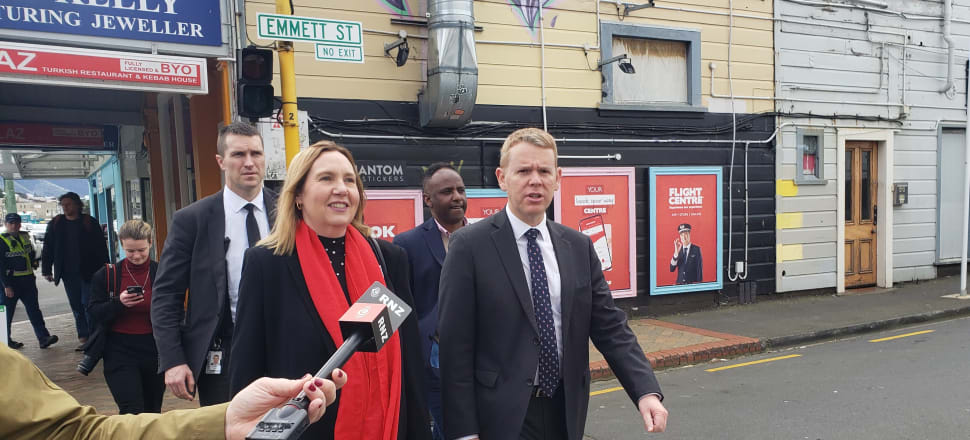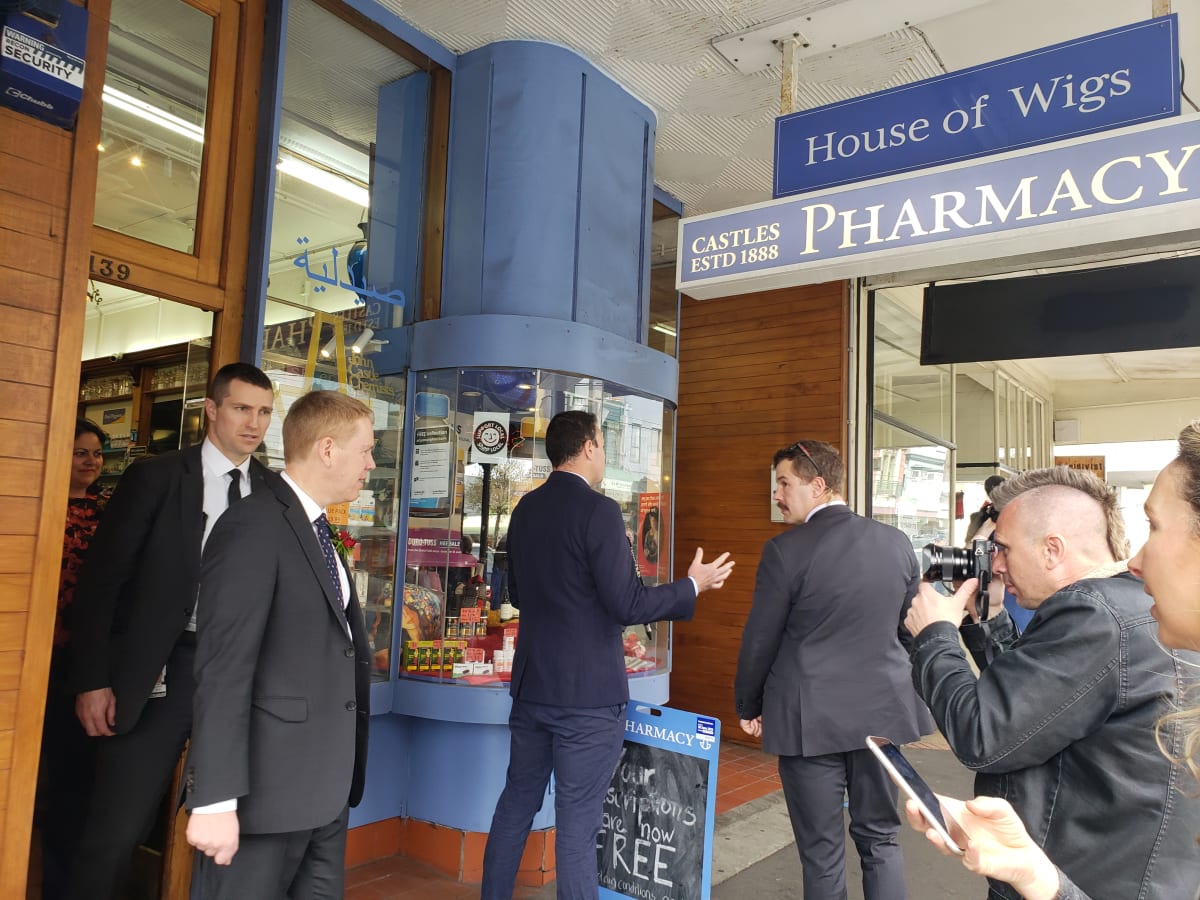
Labour's second full day of campaigning focused on health, with GPs in Wellington airing their criticisms and praise of the Government's approach to healthcare, Marc Daalder reports
On the wall in the staff room of the Newtown Union Health Service in Wellington is a piece of paper bearing Chris Hipkins' signature.
It says it's a certificate "in recognition of your service in support of the national Covid-19 response" and is addressed to the entire clinic. It's one of tens of thousands of Covid-19 Response Recognition Awards distributed this year and like all of the others, it didn't necessarily come with any greater recognition than a piece of paper.
The health clinic, which serves low-income and refugee communities, is still seriously challenged on a range of issues, GP Vivienne Coppell told Hipkins, Health Minister Ayesha Verrall and Labour's Wellington Central and Rongotai candidates Ibrahim Omer and Fleur Fitzsimons during a campaign stop on Monday.
"I'm not very fond of Te Whatu Ora at the moment. It's altogether too much talk and not enough money coming through for us to do the job."
Verrall, who has championed the health reforms that created Te Whatu Ora out of 20 district health boards, took the criticism graciously.
"I think one of the simplest things is when we make things free," she replied to murmurs of agreement. "That's what we're going to do with dentistry and what we've done with the co-pays on medicine. One of the debates of the election is whether or not you have universal or targeted care."
These exchanges typify the nearly 20-minute campaign stop between the Labour politicians and the staff at the clinic. While Coppell, board secretary Fiona Osten and board chair Tim Rochford pushed Hipkins and Verrall on staff availability, funding for GP clinics and red tape from Te Whatu Ora, they also celebrated the removal of prescription fees and the party's just-announced dental care policy.
"We all welcome if there was free dental care and obviously 30 is the first step," Osten said. Then, a little later, "I was going to say, thank you for the free scripts."
"Making a difference?" Hipkins asked.
"Absolutely, for the patients and for us as a practice," Osten said. "We used to take some of our funding and put it aside to pay for scripts for people that couldn't afford to get them that we felt really needed the medication. So now we've been able to use that money for something else."
Hipkins and his entourage next visited a small, independent pharmacy down the road, where staff were purely excited. No criticism or questioning there, except for a quip from a reporter about a shelf of wigs for sale – did the Labour leader want to buy one for Christopher Luxon? That would be taking things too far, Hipkins replied with a grin.

Shahlaa al Salih, the pharmacist at Castles Chemist/House of Wigs, said patients were collecting more prescriptions more regularly than previously.
"Our bins are not as full as they used to be before. And it's really good for us as an independent pharmacy as well, because it was really hard for us to compete with the big corporates," she said.
"Most of our patients, they are from a low-income background and the language barrier is one of the issues as well ... It's good for them to choose a pharmacy they can communicate with easily rather than choosing the cheapest pharmacy."
Back in Parliament, Hipkins said the visits showed there was still work to be done on implementing the health reforms.
"The health reforms are a work in progress. Getting Te Whatu Ora, getting the Māori Health Authority, these are steps in the right direction," he said. "I still think there's huge opportunity for us in the health system to place a greater emphasis on primary care. You saw that in the decisions we took around dental. It is an example where earlier intervention can actually reduce the need for people to need more complex healthcare further down the track."
Labour has put an enormous amount of money and attention into the health system in its time in office, even if you put aside the Covid-19 response. The health reforms were the biggest shakeup of the system in a generation and its 2019 Budget was centred on mental health access – albeit with checkered results.
Since Ipsos began polling New Zealanders on specific issues in a regular series in February 2018, Labour has consistently been viewed as the party most capable of managing the health system and hospitals. Its perceived competence rose to a high in November 2020 with 61 percent saying it was most capable in this area, though that has now fallen to 34 percent with National close behind on 29 percent.
That means it's no surprise Labour is campaigning on health, nor that the second day of its campaign would centre on visits to a clinic and a pharmacy. Prescription copays and (some) free dental care (for some people) are popular measures which also help households squeezed by the cost of living.
Still, as Hipkins concedes, there's a lot left to do. Verrall is keen to sort out GP funding, after a review of the system commissioned by the Government found an extra $614 million was needed to address 70 percent of unmet need.
Neither Labour nor National has said it agrees with the findings of the report, but overhauling how GPs are funded will be one of the big jobs for the next government. Otherwise clinics like the Union Health Service will keep struggling to give their patients the care they deserve.







